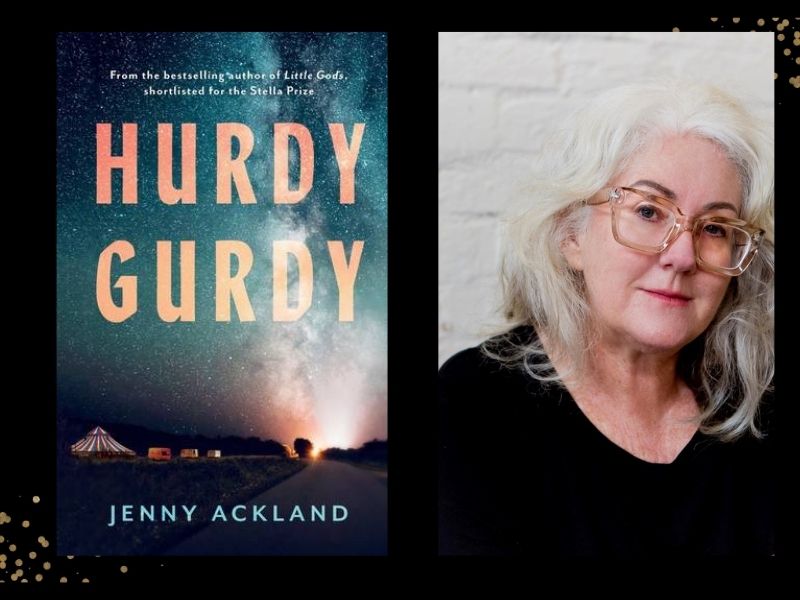Jenny Ackland’s third novel, Hurdy Gurdy is set in a near-future Australia – one in which women must work outside the law to maintain bodily autonomy in the world. It’s an environment where men’s rights, temperance and control of women’s bodies have forced the novel’s protagonists, Queenie and Win, to travel the backroads of a changed country, with a reverend and nun preaching against what they offer. It’s a world where ideologies collide.
Queenie and Win’s hairdressing and shaving services act as a front – to rid women of unwanted foetuses. It’s a world where society is constantly bombarded with arguments about morality and what is right – who has the right to decide where life begins? There is pushback against the gains that marginalised communities have made.
Hurdy Gurdy acts as a testimonial reflecting on the dire circumstances that people – in this case, women – find themselves in when rights are dialled back or taken away to accommodate the few who do not want to share privilege and think their way of life is the only way. It’s a frightening reminder of how fast things can change and how quickly and willingly people accept it. Women like Queenie and Win try to make a difference in clandestine ways, skirting the laws that deem ending a pregnancy a crime in this dystopian version of Australia.
The triumph of this novel and its most powerful aspect is its decidedly feminist stance – the raising up of women’s voices in a provocative and haunting way. The narrative is told through two perspectives – Queenie and Win, who come from different generations and understand the world differently.
Win seems more open, more willing to talk about things than Queenie, which makes her sections easier to read. Yet at times it is the vagueness that gives some insight, probing readers to ask questions about what is going on. The narrative examines the role humans play in the world – in this instance, how we treat each other and what people do to help when others find themselves in dire circumstances or driven to have an abortion.
There are moments that make this book hard work – sometimes, the characters hold back quite a bit, and this may frustrate some readers, as it encourages and expects the reader to fill in the gaps. It is a story that touches on important issues with eerie echoes of The Handmaid’s Tale and changes in laws in the US, particularly the reversal of Roe v Wade. So it serves as an important reminder of how quickly rights for a single demographic can be rolled back with the stroke of a pen.
But it’s not an easy beach read; it takes concentration to get the most out of what is going on.
Read: Book review: Heartsease, Kate Kruimink
Hurdy Gurdy examines the spectrum of humanity, of men and women and how they do or do not relate to each other. It explores the role of religion through a feminist lens and uses care and sensitivity when looking at issues of life, death and hard-held beliefs. Relevant for our times, it’s a cautionary tale of where extremism can lead us. Hurdy Gurdy reminds us we need to continue speaking out against injustice and to not be complacent about the society we live in.
Hurdy Gurdy, Jenny Ackland
Publisher: Allen and Unwin
ISBN: 9781761069796
Format: Paperback
Pages: 323 pp
Release date: 4 June 2024
RRP: $32.99





